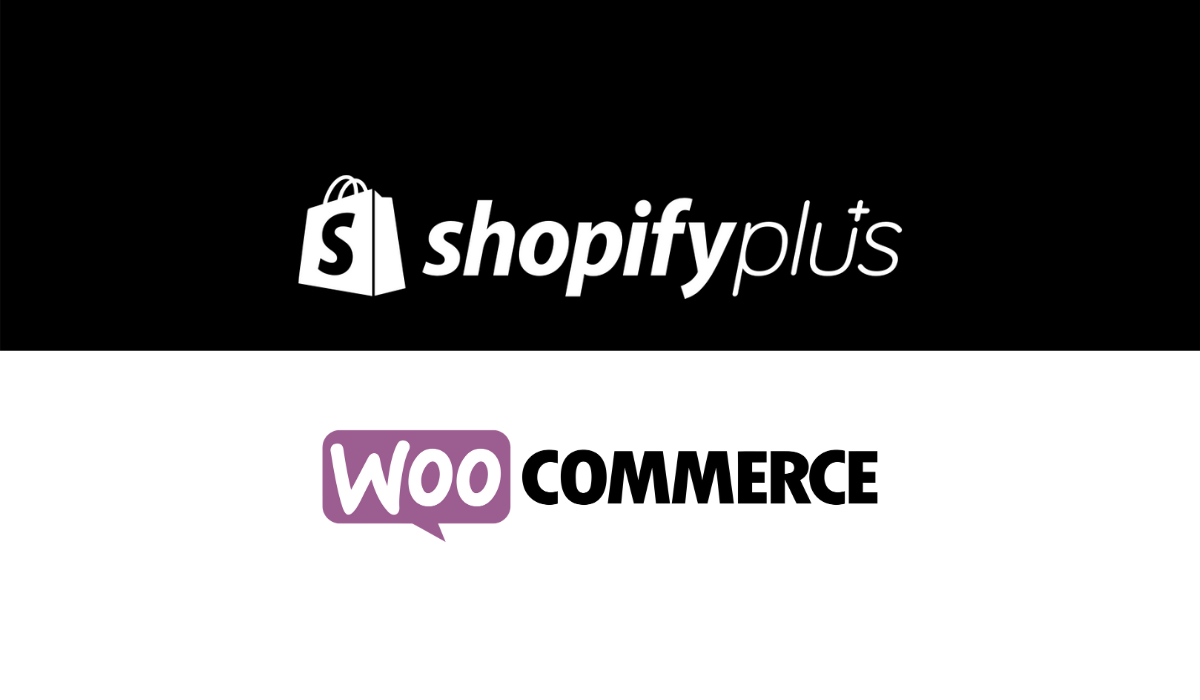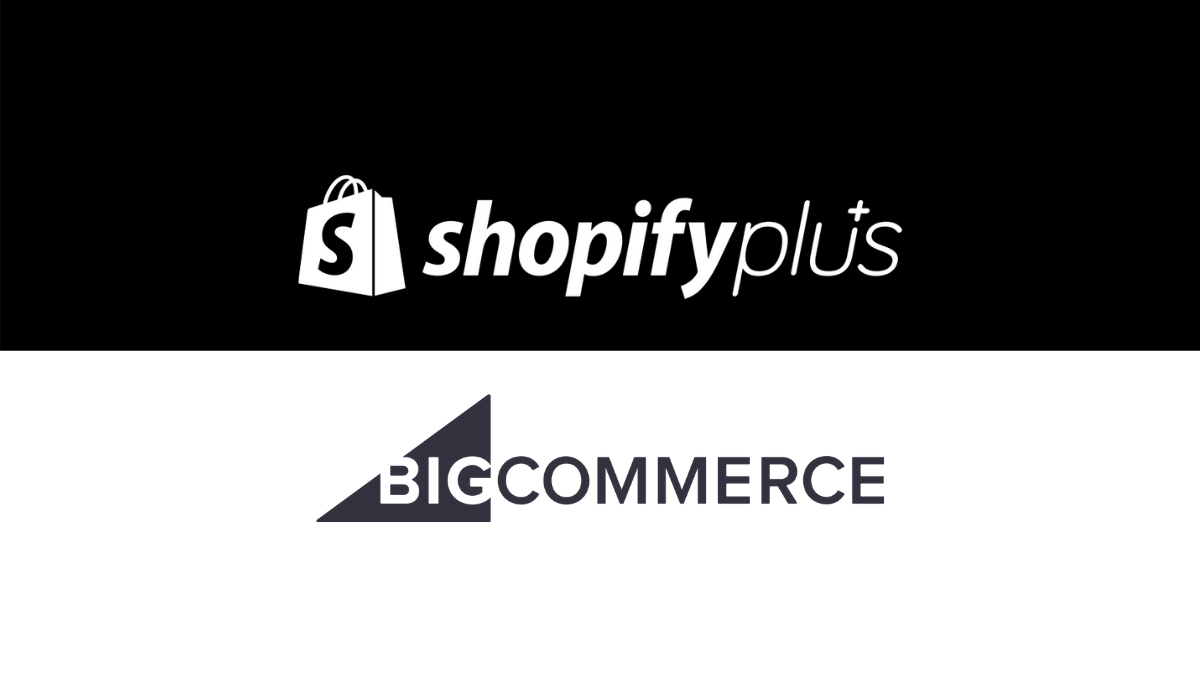Shopify Plus vs Salesforce Commerce Cloud: ecommerce store comparison
Over the past decade, ecommerce has blossomed into a trillion pound industry with no sign of slowing down. While breaking into this sphere may seem daunting to businesses less versed in tech and web development, there are several companies offering quick and easy access to innovative ecommerce software.
Arguably the most revered enterprise ecommerce platform currently active is Shopify Plus, whose software powers innumerable brands worldwide. Behind such industry titans as Lindt and KYLIE Cosmetics, Shopify Plus sells itself on its ease of use for business owners and their customers, its breadth of integrated marketing tools, and its wide variety of customisable themes.
Another system in the market's upper echelons is Salesforce Commerce Cloud. Operating under similar principles to their competitor, Salesforce’s primary selling point is its unification of all commerce channels into one cloud-based platform.
Both systems offer a SaaS solution that is powerful and excellent to use. But, given the vital role your hosting platform will play in your business, it's essential to familiarise yourself with your options before making your decision. This article will compare Shopify Plus and Salesforce Commerce Cloud in key areas such as scalability and implementation, to give you the knowledge needed to make an informed choice.
Click on one of the links below to jump to that section:
- Comparison overview
- Scalability
- Implementation
- Technical and maintenance
- Store management
- Frequently asked questions
Comparison overview
|
|
Shopify Plus |
Salesforce Commerce Cloud |
|
Price |
Flexible plan starting at $2,000USD per month. |
Calculated on a case-by-case basis, with the lowest plan being around $350,000USD annually. |
|
Hosting |
Fully hosted platform. |
Fully hosted platform. |
|
Customisation |
Extensive ecosystem of apps and themes. |
Open-source, allowing for full customisation and additional apps. |
|
Security |
Level-1 PCI compliance. |
Open-source model offers a variety of high-end encryptions to implement yourself. |
|
Support |
24/7 support with a dedicated Launch Manager for implementation. |
Support line during business hours, five days a week. |
In short, the two platforms cater for different demographics. Shopify Plus is structured with the needs of the enterprise-level business in mind but is designed for those with little to no back-end technical expertise, whereas the complexity and high price-point of Salesforce Commerce Cloud limits its appeal to lower-income businesses.
Scalability
There is no room for short-sightedness in business, and this is especially true in a sphere as volatile as ecommerce. A crucial criterion in choosing a hosting platform is its capacity to support your business as it grows. You should always take your development roadmap into consideration before selecting your ecommerce provider.
Shopify Plus is intended for the enterprise-level merchant who is experiencing or expecting to reach very high sales and site traffic numbers. Shopify Plus also allows you to branch out into international currencies and point-of-sale trading, meaning the growth opportunities for your business on this plan are exponential.
Salesforce Commerce Cloud, on the other hand, is designed as a robust yet flexible platform capable of managing increasingly complex processes and integrations. It also has a sophisticated multi-store architecture with advanced international trading capabilities and straightforward assignment of specific merchandise to certain stores.
As mentioned above, the set-up times between Shopify and Salesforce are also very different. Shopify Plus has cornered the large ecommerce website market but is also worthwhile for medium-sized online traders who want to expand into a new platform and get their new store off the ground incredibly quickly. Salesforce is ill-equipped to help those on this end of the scale, given its complexity and high price point.
Implementation
No store is an island. For your business to thrive, you have to be a part of the colossal web of interconnectivity. Both Shopify Plus and Salesforce Commerce Cloud provide integration for a variety of third-party apps, payment options, and social media, but with some notable differences.
Shopify Plus comes equipped with a multitude of third-party integrations, especially in terms of payments. As well as apps such as Klarna or Sagepay, Shopify payments can operate through its own standalone system run by Stripe. The Shopify app store is one of the platform’s key strengths: while there is little customization available on your end, developers can create their own apps which are available for easy downloading and implementation. By taking advantage of this, businesses can compete with the very biggest in terms of functionality.
The cloud-based architecture of the Salesforce Commerce Cloud allows for seamless integration of social media and multi-platform shopping. However, this requires a large budget and, even then, further research into choosing a partner to work alongside.
Technical and maintenance
Shopify Plus was designed to be usable by people with any level of technological knowledge so that business owners and their staff can focus their attention on customer-facing activities and development. Little or no knowledge of web design is necessary to create a website aesthetically aligned with your vision. As well as this, the hosted nature of the platform means you do not need to worry about maintenance or server upkeep.
By being open-source, Salesforce’s platform is a more technologically flexible entity. This might appeal to larger businesses with an in-house team of developers, but less so for firms who are still growing. Salesforce Commerce Cloud lacks a theme marketplace comparable to Shopify Plus, but does offer the opportunity to build wholly unique sites for those who can spare significant capital investment.
Store management
Store management is another area in which Shopify Plus’s straightforward interface is helpful. Shopify Flow is a simple automated workflow creator available to Plus merchants, allowing you to establish algorithms to be followed routinely and easing some of the administrative stress that comes with running an online store. Shopify’s pre-built account management is also robust and requires little in the way of tweaking out of the proverbial box.
One of the biggest attractions to Salesforce Commerce Cloud is its seamlessly integrated multi-store construction which means that users can begin wholesaling and enterprising internationally rapidly. Salesforce also has a number of native features for marketing and merchandising, but lacks a comparable suite to Shopify Flow for managing workflows.
Frequently asked questions
Does Shopify Plus work for B2B and wholesale?
In short, yes. Shopify Plus is an agile platform and can be adapted into a robust system for B2B and wholesale businesses. For further advice, please consult our guide.
What about other platforms?
We know that Shopify and Salesforce are not the only options available. As such, we have put together comparison guides between Shopify and Magneto, as well as Shopify and BigCommerce.




